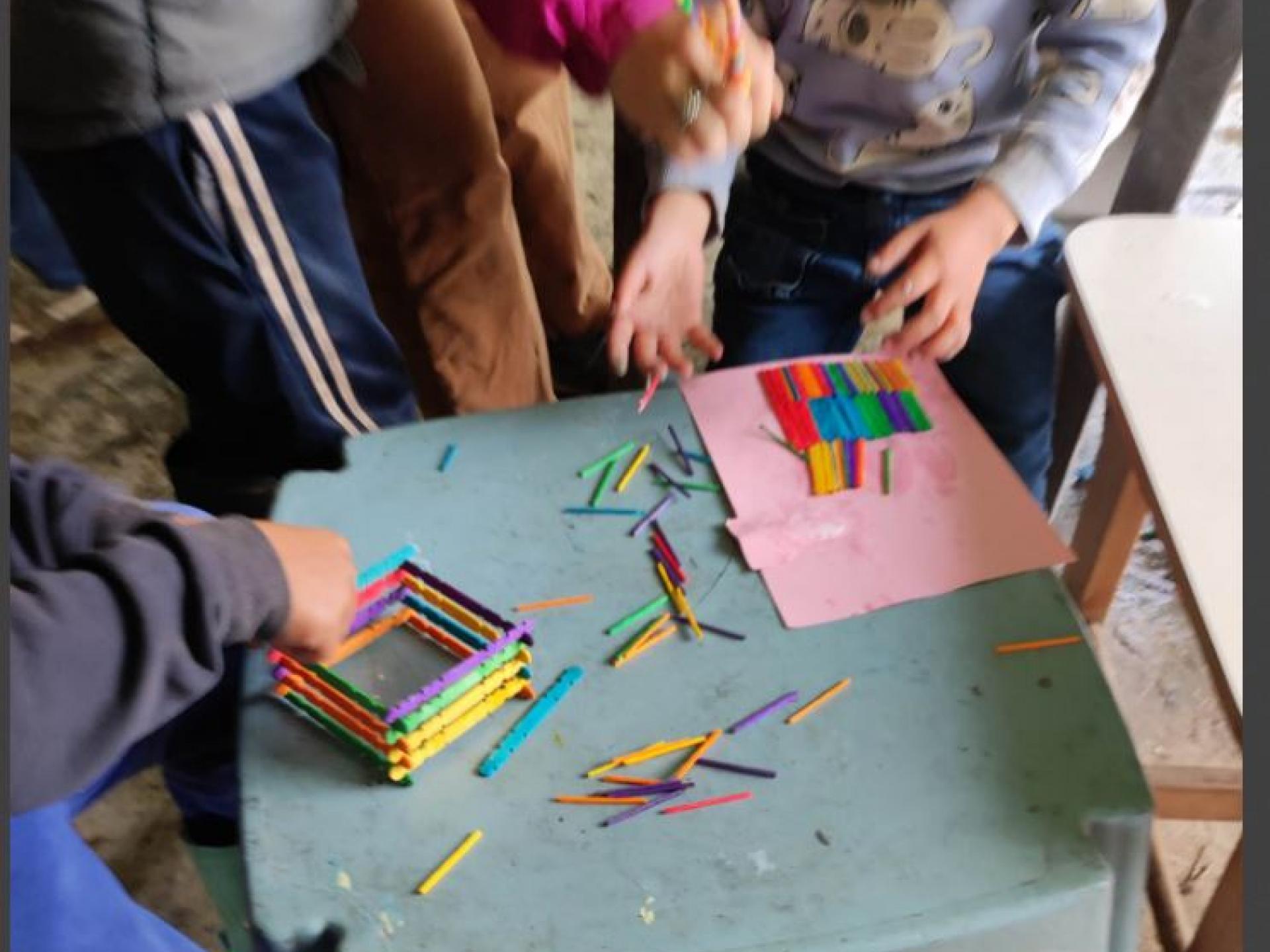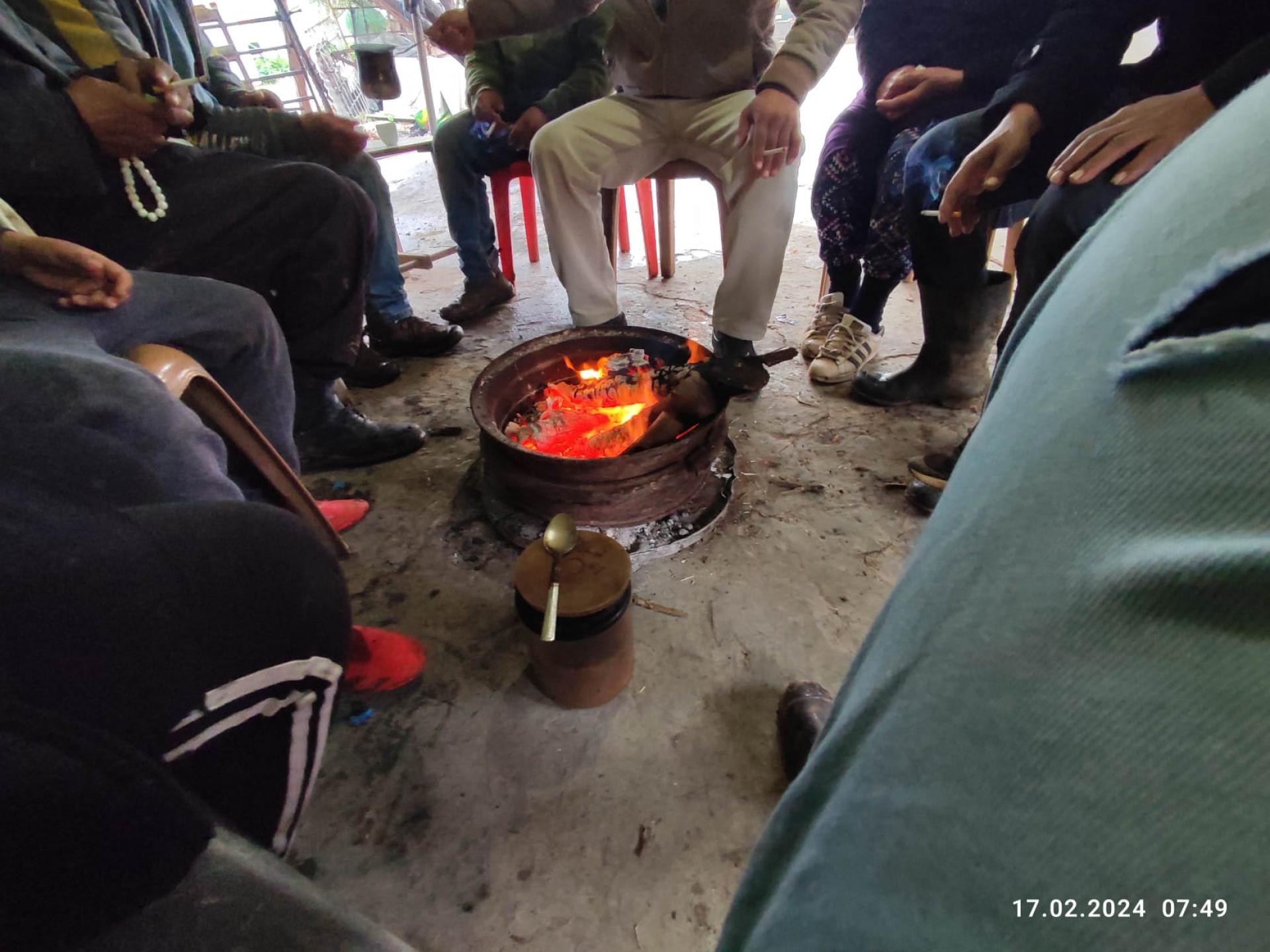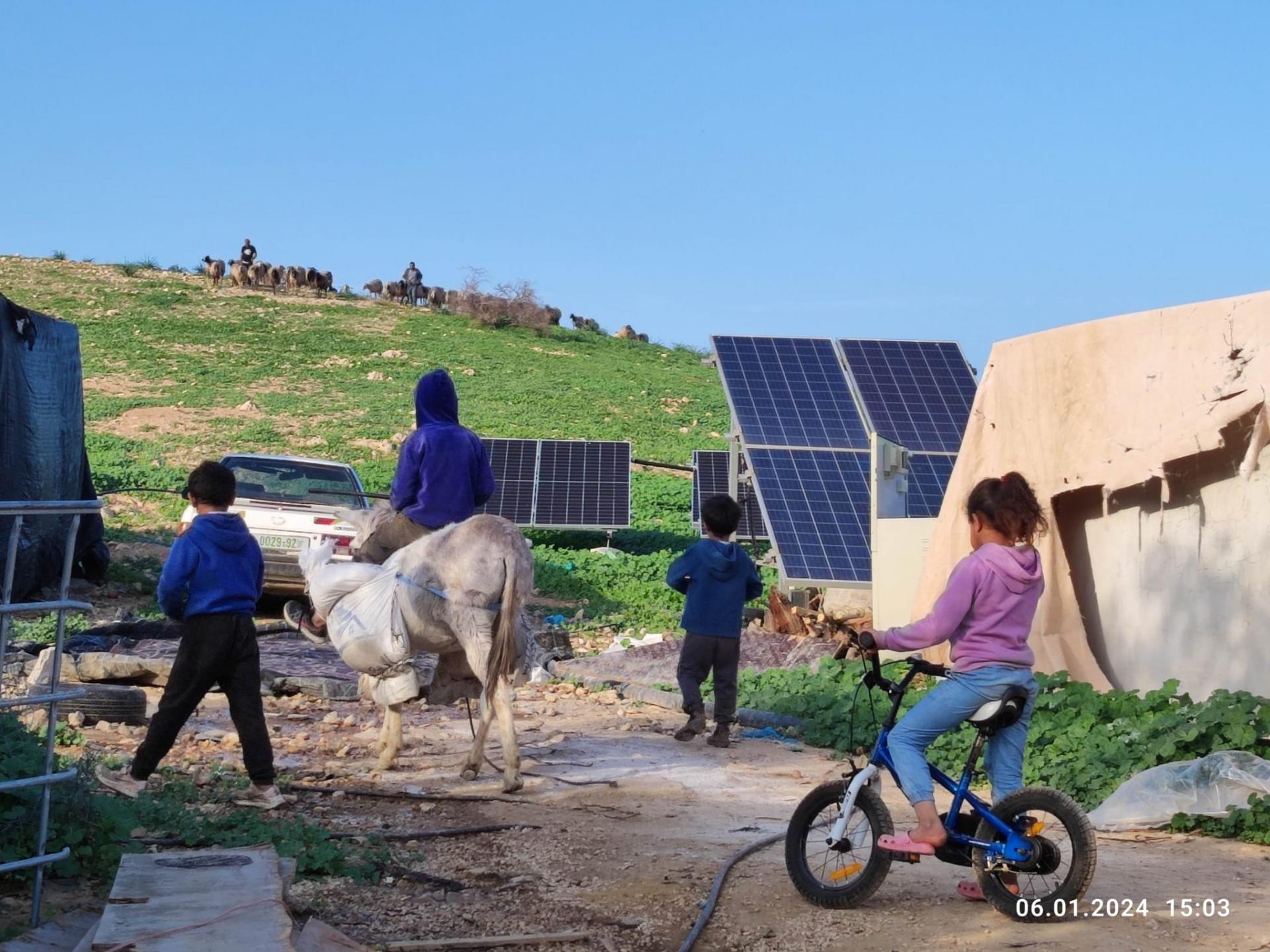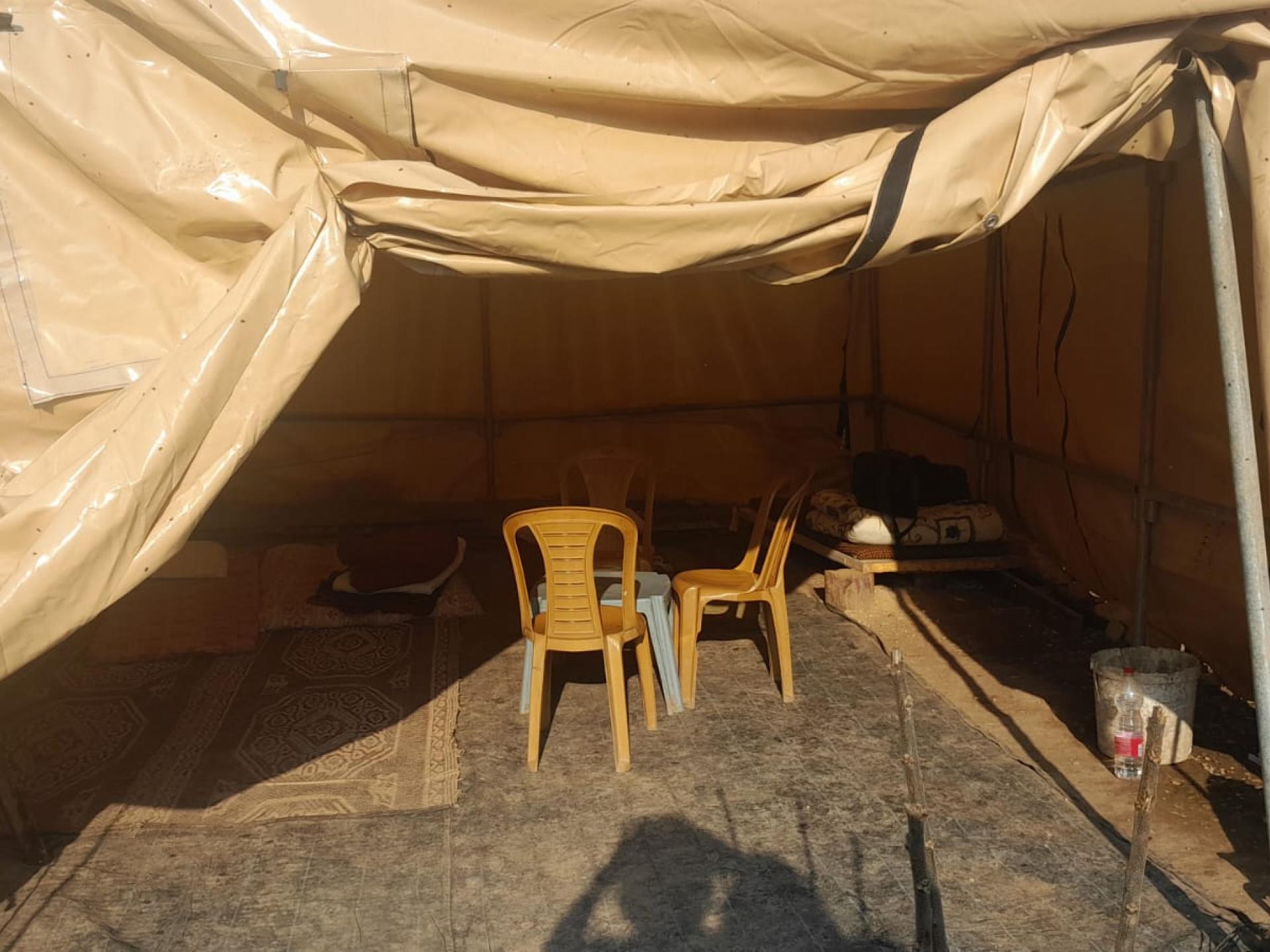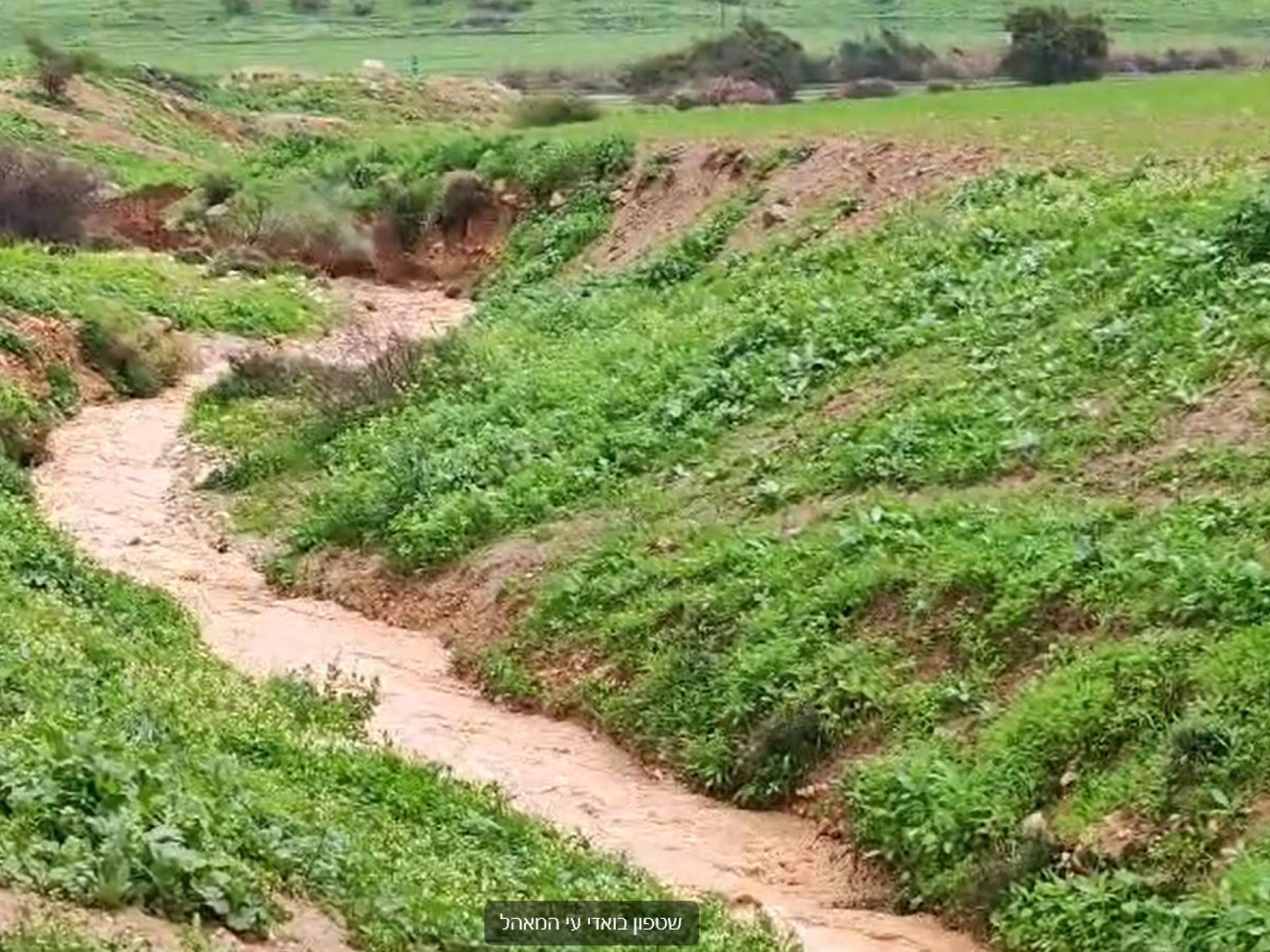Farsiya: Shifts of protection from Settler attacks
Friday 16.02.2024
Nati and I (Miki) arrived in the evening in Farsiya, for a night shift of 'protective presence' as part of protecting the community of shepherds there (24 hours 7 days a week) against settler attacks. We replaced the friends who were on the morning/afternoon shift. Sasha took us to the place where an incident happened at noon that ended well, with the aim of preparing us for similar incidents that are becoming more and more frequent in the valley.
He told us that the shepherds B. and L. were grazing on a hill near Farsiya at noon, in a public area of 'State lands', where they graze every day with no obstacle even according to the occupation laws, when suddenly seven IDF soldiers arrived. They were alerted by the settlers Gilad and Didi Amosi from the outpost (which still has no name) which is actually an extension of the Rotem settlement.
In the outpost, two large buildings are brightly lit by an abundance of tall floodlights, supplied by the Rotem settlement. Apart from the Amosi family there are HIlltop Youth there. They make a living from a herd of 100-200 head of sheep and may also be supported by the Jewish Agency’s department for settlement in territories. With the help of this department, they and the Rotem settlement were assigned (probably with illegal authority) pasture lands that reach just a few meters from the houses of the Palestinian settlement of Farsiya. This prevents the Palestinian shepherds from grazing in the areas where they graze from day to day.
With the appearance of the army, the shepherds quickly drove their sheep towards the mountains and the Israeli escorts remained in the field with the soldiers. The soldiers demanded that the escorts call the shepherds to clarify the claim for which they were called - grazing in a prohibited place. Instead, the escorts showed them maps of the civil administration and explained that this is an open public area, according to the laws of the occupation, and grazing in it is therefore allowed for everyone.
and explained that this is an open public area, according to the laws of the occupation, and grazing in it is therefore allowed for everyone.
The soldiers, who probably didn't really understand the maps and didn't feel like chasing the shepherds in the rain, gave up and left. If not for this, it is very possible that the herdsmen would have been arrested, interrogated, detained for several days and finally released, because it is a false allegation in the first place. The Amosi family conducts repeated clashes in the fields with the shepherds from Farsiya, as revenge for the fact that the police forbid them to enter with their herds on fertile Palestinian lands.
The rain that fell all day in heavy bursts, continuing at night as well. Nati and I huddled with the members of the various families in B.’s family encampment, around a makeshift wood stove, with cups of tea and coffee, and we heard from them about the day's events and the growing fear that the pastures they still had left were closing in on them.
The night passed quietly in the volunteer tent, which has mattresses and blankets, a mat and a small table and chairs. Sometimes parent and child meetings are held here with the volunteers, for conversations and creative activities, and always with tea and coffee that the hosts bring.
Saturday 17.02.2024
The heavy rain continued to fall the next day against the background of the morning sounds of the livestock - roosters crowing, sheep bleating, dogs barking and cats mewing.
Later in the morning, the six day shift’s volunteers arrived and they immediately joined the shepherds, who did not give up grazing in the rain. Shepherd A. went out accompanied by Yaara and David a short distance from his house, the pasture was wet but peaceful and without disturbances. L. and B. grazed in another place, also close to their home, where there was probably a break in the cloud that drove them back after an hour. They and their sheep were soaked to the bone.
Danny and Tom went to accompany Y. to Khalat Makhul, an encampment of Palestinian shepherds close to the Hemdat settlement. It was raining there as well, but when they saw that the shepherd and his children were braving it, they decided that they too could tolerate it and accompanied the herd for 4 hours. The grazing went without interruption.
Merav and I stayed at Farsiya. We walked around among the families where only the women and children remained. We spent the time talking about the affairs of the day, about life and the children. We helped the children with their English homework and also engaged them in gymnastics and handicrafts. From time to time we glanced towards the mountains and also went right there, to see if settlers had arrived in the sown areas, but the unceasing rain probably left the settlers at home.
Danny, a mechanical engineer by profession, returned from the pasture at three and as always, immediately sat down to fix the children's bikes. These are bicycles that he collects on the streets or receives as a donation, repairs and refurbishes and brings to the children, to their great delight. And there is no shortage of work - chains fall off, a chair comes loose, a flat tire. In the breaks between the rains, the children returned to riding in the field and the women hurried to milk the sheep. The milk goes to the town of Tubas to make cheese, yogurt and drinks for the town's residents.
The night shift arrived at half past four in the afternoon and we said goodbye to everyone and continued to Tel Aviv, to a demonstration for the release of the kidnapped and the end of the war.
A day of occupation passed peacefully, but tension and uncertainty continue to roil beneath the surface.

